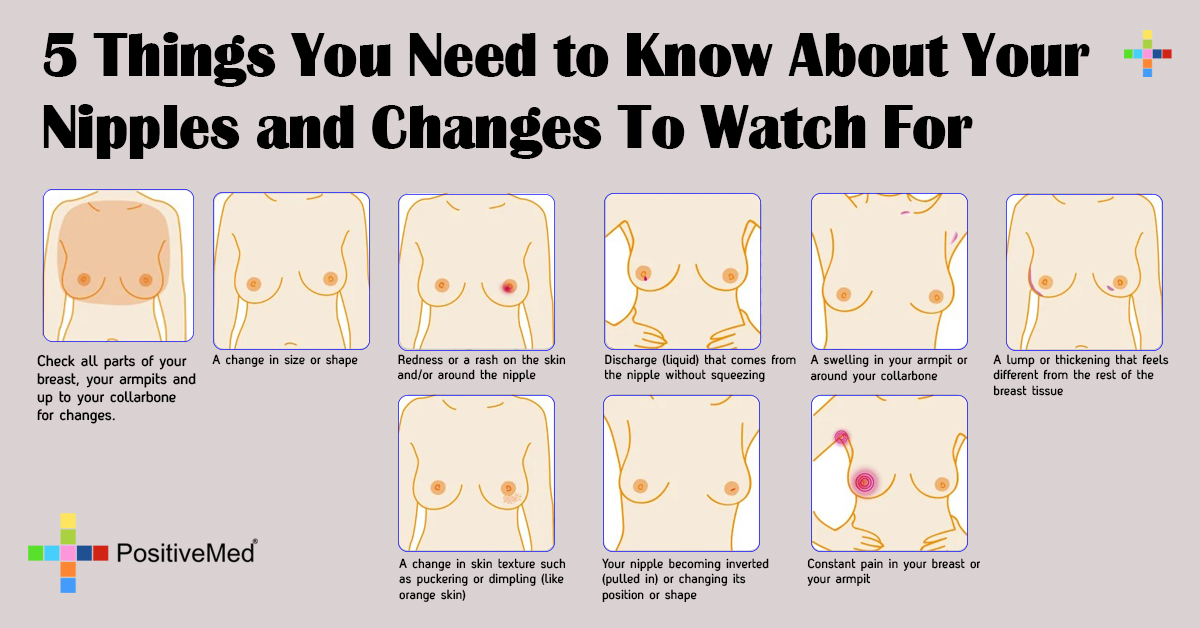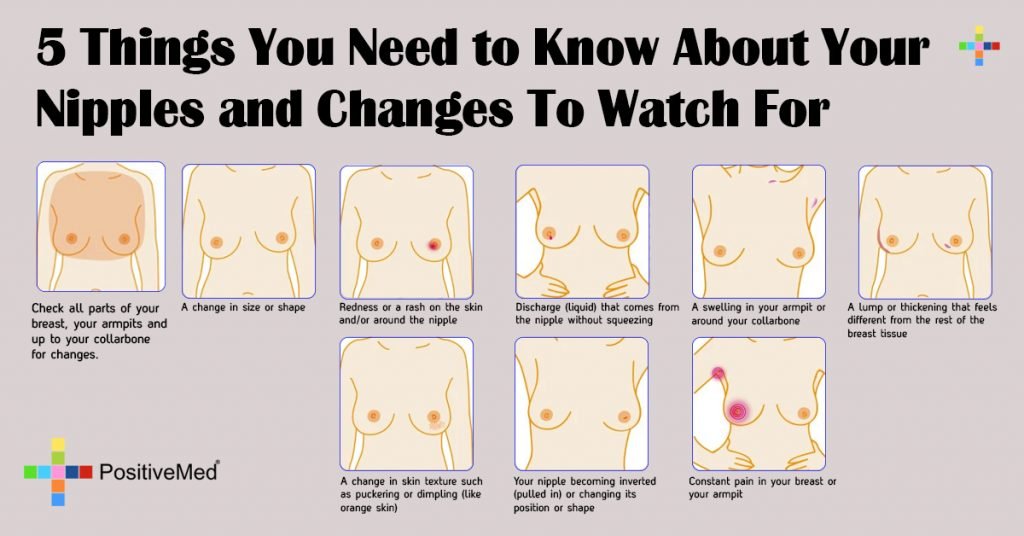
5 Things You Need to Know About Your Nipples and Changes To Watch For
Know Your Nipples
You will notice changes to your breasts and nipple tissue throughout your lifetime, and many of these changes are perfectly normal. Your breasts will tend to lose density as you age and pregnancy, menstruation cycles and medication can all change the look and feel of your breasts. There are, however, some changes that indicate it’s time to see a doctor make sure your breasts are not infected or developing cancerous tissue. Here are five of the most common nipple problems and changes women experience and what you need to know about them.
Rashes
Rashes on the nipple and surrounding breast tissue may be caused by the same things that cause rashes elsewhere on the body. A rash may be caused by an allergic reaction to certain fabrics or soaps as well as psoriasis and eczema. Excessive sweating may also cause a rash. If a rash develops during breastfeeding it may be mastitis. This is an infection of the breast tissue that often forms around the nipple in breastfeeding women. Most of these rashes, though uncomfortable, are harmless and can be treated with topical ointments or oral antibiotics. In rare cases, however, nipple rashes can be a sign of breast cancer, so it’s important to ask your doctor about nipple rashes.
Discharge
Nipple discharge can be frightening and embarrassing but, thankfully, is not typically associated with breast cancer or other serious problems. Bloody or clear discharge from the nipples usually signifies an infection of some sort but can be caused by certain medications, including birth control pills. The discharge may occur when you squeeze the nipple or simply leak out on its own. It’s important to see your doctor about nipple discharge so she can check you for infection. It is normal, however, for breast-feeding mothers to expel some milk in between feedings. You don’t need to see your doctor about this.
RELATED ARTICLE: 7 Interesting Facts to Know About Nipples ( and Piercing Them! )
Inverted Nipples
Inverted nipples is just a fancy way of referring to nipples that dimple inward instead of pointing out. These are actually quite common and found in 10 to 20% of women. Many women go their entire life with inverted nipples while others actually form more nipple tissue during pregnancy and breast-feeding, causing the nipple to pop out and stay that way. Inverted nipples are generally considered only to be a cosmetic issue that does not require treatment. There are, however, milk duct cancers that can pull a normal nipple inward, so visit your doctor if your outies have quickly become innies for no reason. If you’ve always had innies, you don’t need to discuss the issue with your doctor unless the condition bothers you.
Tenderness
Tender nipples can be a cause for concern but only under certain circumstances. It’s perfectly normal to notice tender nipples at certain times in your menstrual cycle or during pregnancy. You nipples may also be sore and tender if they’ve experienced friction from rubbing against an ill-fitting sports bra or are sensitive to certain soaps and laundry detergents. See your doctor, however, if your nipples have become more tender and sensitive than normal and you can’t find the cause.
Hairy Nipples
You can breathe easy if you’re struggling with this one. While many women find hairy nipples to be embarrassing, they are perfectly natural and healthy. They’re also much more common in women than you think, so you’re not alone if you’re battling them. Your doctor may be able to offer some suggestions if you’re very self-conscious about this condition but it is not a cause of medical concern.
If you ever notice changes in your nipples or breasts that you can’t explain, see your doctor right away. It is far wiser to visit the doctor for a minor problem than skip an appointment and find a serious problem later. Remember that your doctor has likely seen your problem before so there is no need to be embarrassed or hesitant to discuss nipple changes with him or her.
[/nextpage]






